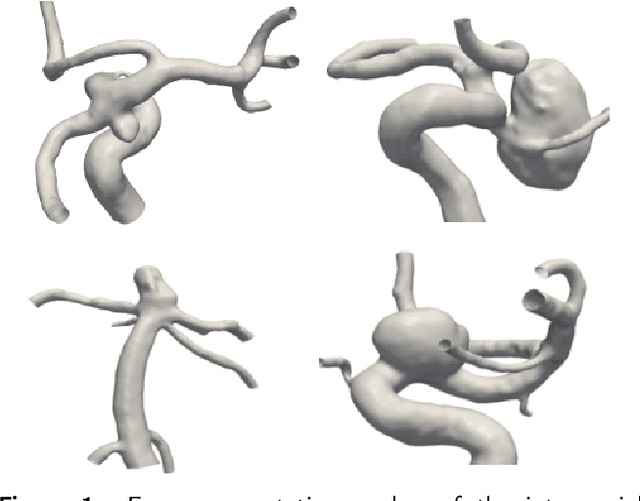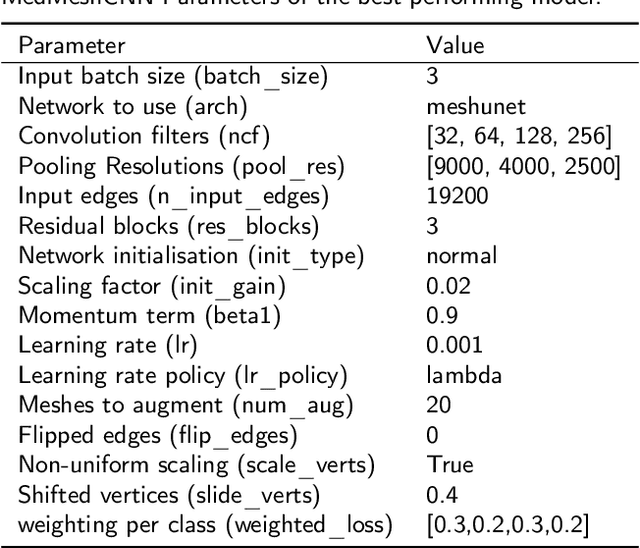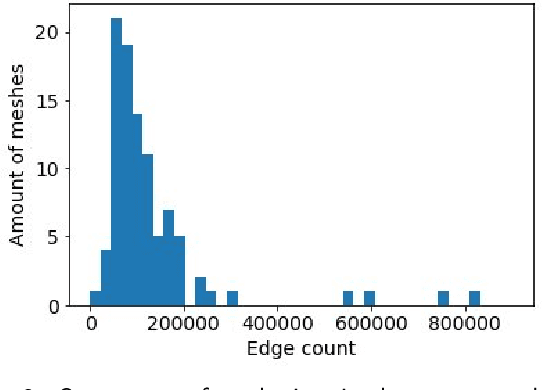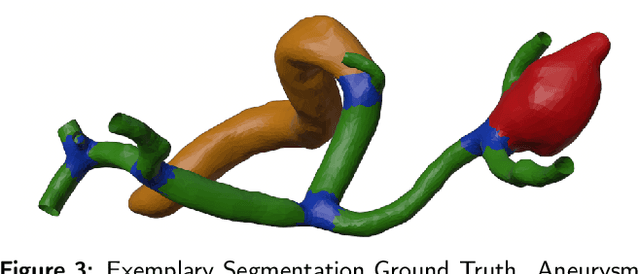MedMeshCNN -- Enabling MeshCNN for Medical Surface Models
Paper and Code
Sep 10, 2020



Background and objective: MeshCNN is a recently proposed Deep Learning framework that drew attention due to its direct operation on irregular, non-uniform 3D meshes. On selected benchmarking datasets, it outperformed state-of-the-art methods within classification and segmentation tasks. Especially, the medical domain provides a large amount of complex 3D surface models that may benefit from processing with MeshCNN. However, several limitations prevent outstanding performances of MeshCNN on highly diverse medical surface models. Within this work, we propose MedMeshCNN as an expansion for complex, diverse, and fine-grained medical data. Methods: MedMeshCNN follows the functionality of MeshCNN with a significantly increased memory efficiency that allows retaining patient-specific properties during the segmentation process. Furthermore, it enables the segmentation of pathological structures that often come with highly imbalanced class distributions. Results: We tested the performance of MedMeshCNN on a complex part segmentation task of intracranial aneurysms and their surrounding vessel structures and reached a mean Intersection over Union of 63.24\%. The pathological aneurysm is segmented with an Intersection over Union of 71.4\%. Conclusions: These results demonstrate that MedMeshCNN enables the application of MeshCNN on complex, fine-grained medical surface meshes. The imbalanced class distribution deriving from the pathological finding is considered by MedMeshCNN and patient-specific properties are mostly retained during the segmentation process.
 Add to Chrome
Add to Chrome Add to Firefox
Add to Firefox Add to Edge
Add to Edge